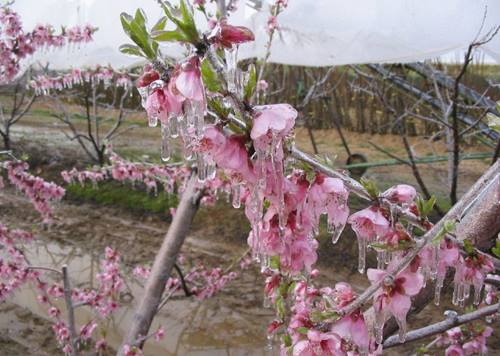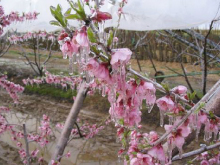Source: Department of Communication CSIC
An international team with the participation of researchers from the Spanish National Research Council (CSIC) has discovered that the protein HOS15 plays a role in the adaptation of plants to low temperatures. The discovery, published in the journal PNAS, makes this protein a very useful target for generating biotechnological tools that allow obtaining crops with greater tolerance to frost.
Frosts cause serious annual losses in crop production, especially if they occur at critical moments in plant development, such as seed germination or flowering. However, it is well known that a prior period of exposure of plants to moderate low temperatures, a process known as acclimatization, allows for greater tolerance to frost. During the acclimatization process, plant cells produce cryoprotective and antioxidant substances that protect them from freezing or the damage it causes. In recent decades, numerous genes have been identified, such as the so-called COR (cold responsive) genes, which participate in the acclimatization process and allow the plant to tolerate low temperatures.
Researcher José Manuel Pardo, from the Institute of Plant Biochemistry and Photosynthesis (joint centre of CSIC and the University of Seville), who participated in the study, explains that: “The HOS15 protein plays a key role in the modulation of acclimatization responses by acting at the chromatin level. Thus, under low temperature conditions, HOS15 associates with CBF proteins, which are transcription factors specialised in the response to cold, and facilitates their binding to COR genes.”
Researcher Vicente Rubio, from the National Biotechnology Centre, explains that “when the temperature is optimal, the cold response genes are “silenced” and therefore inactive. On the contrary, a drop in temperature promotes the activity of CBF proteins, which bind to the promoter regions of COR genes and activate their expression. To do this, CBF proteins recruit other chromatin remodelling factors, such as histone acetylases, whose activity ‘opens’ the chromatin and makes it more accessible to the transcriptional machinery, thus intensifying the expression of COR genes and therefore tolerance to frost.”
Despite the adaptive advantage they provide, responses to cold stress have a negative counterpart in a reduction of plant growth. To limit this negative effect as much as possible, plants have regulatory mechanisms that act on chromatin and allow the rapid and precise “on or off” of acclimatisation responses depending on the ambient temperature.
“In this study it has been shown that the HOS15 protein plays a key role in chromatin modulation during acclimatisation,” the researchers explain. “In response to cold, HOS15 promotes the degradation of HD2C, a histone deacetylase that keeps chromatin closed and prevents the expression of COR genes. As a result, the expression of COR genes and cold acclimation are activated,” they add.
“On the contrary, rising temperatures modify the activity of HOS15, turning it into an inhibitor of the cold acclimation response,” the researchers explain. “To do this, HOS15 forms a stable complex with HD2C that binds to the COR genes and inactivates them. In this way, HOS15 plays a dual regulatory role in acclimation, allowing the transition from an active state of chromatin in response to cold to a repressive one under optimal temperature conditions and vice versa. In this way, HOS15 constitutes a very useful target for generating biotechnological tools aimed at obtaining frost-resistant crops,” they conclude.
Junghoon Park, Chae Jin Lim, Mingzhe Shen, Hee Jin Park, Joon-Yung Cha, Elisa Iniesto, Vicente Rubio, Tesfaye Mengiste, Jian-Kang Zhu, Ray A. Bressan, Sang Yeol Lee, Byeong-ha Lee, Jing Bo Jin, Jose M. Pardo, Woe-Yeon Kim, and Dae-Jin Yun. Epigenetic switch from repressive to permissive chromatin in response to cold stress. PNAS. Doi: 10.1073/pnas.1721241115
You can listen to the interview on Spanish National Radio about this discovery at this link https://www.ivoox.com/entrevista-a-jose-manuel-pardo-programa-audios-mp3_rf_26406254_1.html




